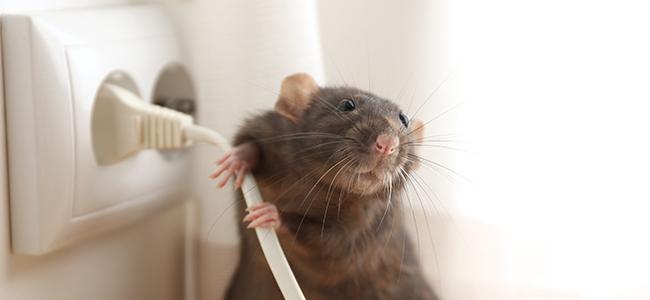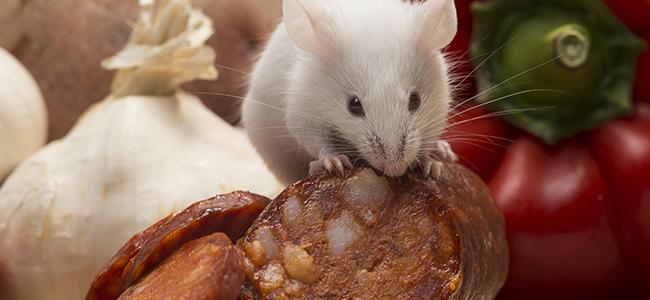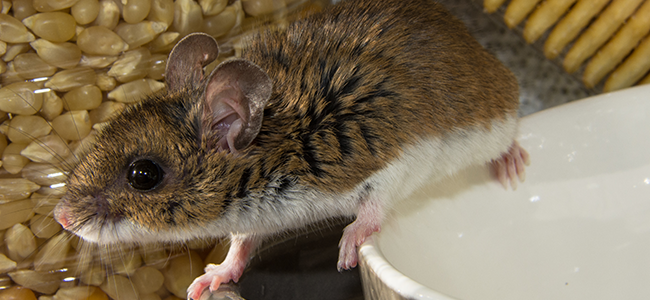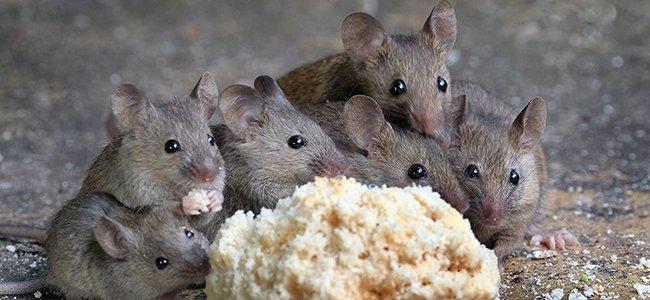
The Trick to Keeping Your Maryland Home Rodent Free
01/03/2022
Do you hear rodents scurrying around your Maryland home? You're not the only one with a rodent problem. For centuri...
READ MORE >
Would you eat a pancake off the lid of a dumpster? How about some scrambled eggs? Of course not. It doesn't matter if it's your favorite dish in the world, you're not eating it.
Let's say I found a spatula in a dumpster, and I brought it over to your house, and offered to make your favorite dish? If I told you where I got the spatula from, you would immediately refuse. But what if I didn't tell you? That's a revolting thought, isn't it? You'd happily consume the prepared food, unaware of the nasty bacteria on it. Would "not knowing" protect you from those microscopic bugs? Of course not. Your body would react as you would expect it to, with abdominal pains and a combination of flu-type symptoms. It doesn't matter if you know, or not.
In this example, I imagine you would connect your illness to the meal I prepared, even if you couldn't immediately tell that the spatula was the culprit. The insidious nature of rodents is that they bring bacteria and disease into your home, and sometimes you don't even know they're there. Your spatula and your plates could have bacteria from a nearby dumpster or trash can on them, and you wouldn't know. You think the flu has randomly attacked your home, but the illness was actually carried in. That is what makes rat and mouse infestations so insidious.
Here are five ways to rodent proof your home.
Start by putting boxed and bagged food items in hard plastic containers. Rodents can smell food, and these items are like a dinner bell. You'll also be protecting those items from being eaten. Rodents have sharp incisors that can chew through a cardboard box or paper bag with ease. If rodents manage to get into your home, you can deter them simply by hiding the food. Rodents are foragers. If you don't have what they want, they'll go find a place that does.
Inside and outside trash should always be sealed. Like above, hiding food sources, and keeping the smell from luring rodents, will go a long way to making these pests target a different house. Exposed trash outside is how many people get rodents in the first place. Once rodents are in the yard, they get curious about what is inside your home, especially if they smell food every time the door is opened.
Seal up holes. Mice and rats can chew through wood quite effectively, but they will usually look for a soft target. If you have rotted wood near the foundation of your home--which happens quite often in the corners of doorways, use a caulking gun to seal those areas, till you can have them repaired.
Don't give rodents access to the roof. You would be amazed how vulnerable your roofline is. Put wire mesh in your downspouts, to keep the rodents from using it to get up. And cut tree branches that hang within five feet of your roof, so rodents can't leap onto your roof.
Call a pest management company to learn exclusion methods specific to your home, and find out how inexpensive it is to get a limited and focused treatment of pesticide on your foundation wall. When rodents come crawling around, give them something nasty to taste, and they'll move on.
Keeping bacteria laden rodents out of your home should be a high priority. Beyond flu symptoms, these pests can spread disease and parasites throughout your house. Take measures today, to keep your family safe from unexplainable illness.

01/03/2022
Do you hear rodents scurrying around your Maryland home? You're not the only one with a rodent problem. For centuri...
READ MORE >

12/30/2021
Mice and other rodents are troublesome pests that you don’t want to find in your Washington D.C. home. Learn why these pests are so dif...
READ MORE >

10/20/2021
Rodents have a long history of human dependency, which is why homes and businesses are often subject to infestations. Rodents have become reliant o...
READ MORE >

01/11/2021
Understanding what mice are capable of and why they get into your house not only puts your mind at ease, but also provides you with the information...
READ MORE >

Protect your home and family from nuisance and potentially damaging pests with a Preferred Care home pest control plan. Starting at $49/month

Don't let the bed bugs bite a second longer. Contact American Pest for the most comprehensive bed bug control in the industry. Learn More

Our certified rodent control pros will put an end to your frustration by getting rid of rats and mice inside your home. Learn More

Say goodbye to wood-destroying termites in your home when you contact American Pest for expert termite control. Learn More

Trust American Pest to deliver professional backyard tick control services that are guaranteed to get results. Learn More

Don't spend the warm-weather season indoors, find out how American Pest's professional treatments get rid of mosquitoes. Learn More
Fill out the form and recieve feedback in less than 5 minutes. For immediate service please call.